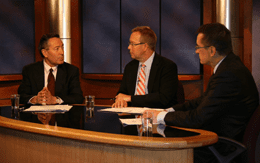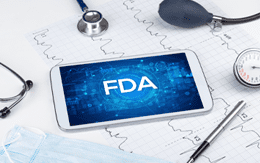In biopharma marketing, we all know the value of providing education to clinicians, and this can come from a variety of places. Direct-to-Consumer (DTC) is a widely used and recognizable marketing tactic, but as any industry professional knows, DTC’s true purpose is to drive patients to HCPs. Historically, a sales force is the most popular method for engaging practitioners directly as it allows for one-on-one discussions about the disease state and product. In the battle to engage with and educate clinicians, a well-trained representative armed with clinical information has a chance to succeed, however, a peer who has direct clinical experience with the agent can provide more meaningful insight which can change prescribing behavior.
The effectiveness of peer-to-peer engagement is exactly why we need more peer-to-peer education, not less.
Master the Latest P2P Education Strategies
Stay ahead of BioPharma trends with V2V’s Insight Newsletter!
Sign up now
"*" indicates required fields

KOLs and speakers are typically more knowledgeable than representatives, although not necessarily in the representative’s product category. It is clear that the field provides important information to clinicians relative to their product. This is especially important with new product launches or additional indications for the given brand. Yet from the data we can observe, it’s clear that HCPs are often more highly influenced by their peers. Making decisions based on peer interaction is true for adults in general (74% of U.S. adults say word-of-mouth influences their purchasing decisions), but this is particularly true for physicians when it comes to prescribing a product for the first time. Like most professionals, when they have no personal experience with a product, they’re going to put stock into the advice of a person whose reputation they trust and who has first-hand experience using it. Learning from peers is and has been the generally accepted practice physicians learn. They read peer reviewed journals, attend association meetings, see representatives and attend peer programs to stay ahead of the changing treatment landscape. It is important to note that even though sales representatives may have solid science orientation they are still perceived by HCPs as salespeople. Even with advanced sales training, their ability to impact prescribing behavior may be impaired. impaired.
Another barrier for the field is access. As we know, access to clinicians has decreased over the years. As of 2018, only 44% of HCPs were classified as “accessible” to sales representatives. Now many HCPs no longer allow sales representatives into their offices, and in 2019 only half of all doctors (54%) met with a sales representative even once during the course of a full year. The pandemic added another component to the equation, completely shutting down sales representative access to doctors for much of 2020. Yet, HCPs still require education on existing and new products and indications; in fact, they want it. In a recent survey, 50% said they would like to hear from pharma on a daily, weekly, or monthly basis. With the decrease in live field detailing biopharma messaging has been significantly reduced for much of 2020, causing many HCPs to quickly realize that they still needed access to medical education. Although journals provide this, clinicians also need the interactive dialogue that live peer exchange provides.
You might be thinking, “if HCPs didn’t have time to see representatives, they certainly didn’t have time to attend peer-to-peer events either,” but that scarcity of time is the exact need peer-to-peer programs are designed to meet. For the majority of the pandemic, virtual peer-to-peer events were the only way for HCPs to access the up to date medical education they wanted. These virtual events were successful enough to provide an opportunity for the Office of Inspector General to release a Special Fraud Alert in November 2020 that recommended the industry stick with virtual programs and curtail how live in-person meetings were executed post pandemic. (We’ve recently made available several in-depth articles and videos covering all aspects of the OIG’s Special Fraud Alert and what it means for the future of speaker programs, which you can access here). It’s important to remember the OIG isn’t concerned with the value of the educational content being delivered, but how it’s being delivered, particularly during dinner programs. The educational content legitimate speaker programs, conducted by ethical biopharma companies, delivers is just as impactful today as it was before the pandemic.

To truly get the most out of peer-to-peer education in today’s new environment, a marketing mix between live, virtual, and on-demand events should be created. HCPs want to hear from biopharma when it is convenient for them, but not every HCP agrees on what that convenience looks like. A separate survey found that 45% of clinicians registered for a medical meeting last year specifically because it was offered online, and that they would not have considered attending in-person, even absent the pandemic. 60% said they want to view virtual event content in the evening. Furthermore, 38% said their speaker program attendance would likely shift over time toward a balance between in-person and virtual events. Almost half said they miss interacting with KOLs and other peers during in-person events.
The ability for speaker programs to be either live and in-person, virtual, or on-demand provides increased flexibility when compared to other healthcare communications strategies. Peer-to-peer educational programs offer a variety of formats, allowing HCPs to choose the one that suits them best. In a climate where HCPs are busier than ever before, they still want deep, meaningful conversations with experts on new products that could improve the lives of their patients. But with less time, they need to be able to participate in a way that works for them, on their schedule. This is where peer-to-peer education combined with technology can make an impact. If a physician can’t attend a live event, they can still meaningfully participate and engage virtually from the comfort of their home or office. If the time of the event doesn’t work for them, they can still tune in any time with an on-demand event. There’s no “one size fits all” event that can meet every doctor and physician where they are, which is why a solid marketing mix of in-person and virtual events is needed to cover the wide swath of HCP preferences.
While we approach the end of the pandemic and look forward to brighter days ahead, the world has undoubtedly changed. Utilizing technology and meeting virtually has proven itself as a new norm that is more prevalent in society than ever before, and that’s here to stay. With peer-to-peer programs, your brand has the flexibility to take advantage of this technology to reach more HCPs, while still ensuring a deep and engaging dialogue about your product. At the same time, many HCPs are looking forward to interacting with their peers again during in-person events. Maximizing audience reach with a diverse mix of peer-to-peer educational programs means taking advantage of all the tools available to create an effective and impactful marking mix which will impact sales.
Speaker programs offer the depth, engagement, and flexibility to provide HCPs with the education they need to make informed prescribing decisions and ultimately improve the lives of patients. Whether their peer-to-peer education is delivered in-person or online, the fact remains that it is by far one of the most valuable resources for HCPs that biopharma companies can and should provide. To effectively deliver meaningful information to clinicians need more peer-to-peer education, not less.




